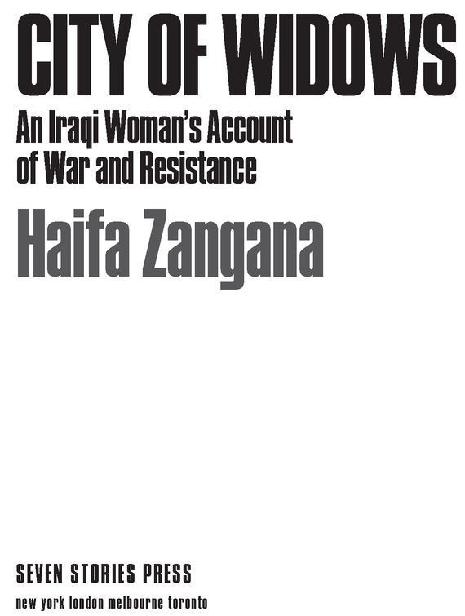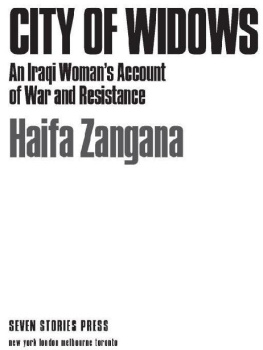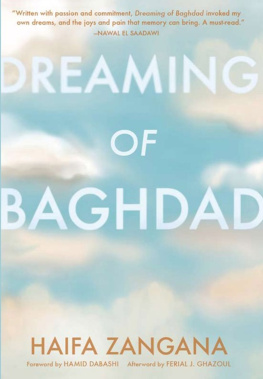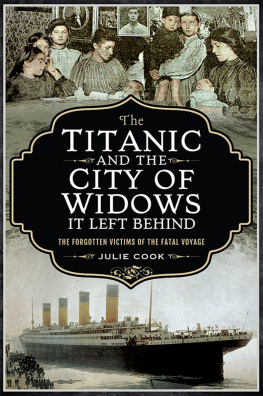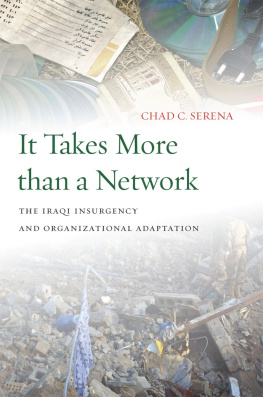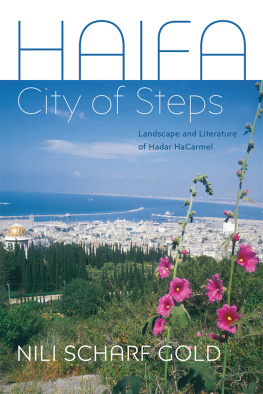Table of Contents
To the memory of Abeer Qassim Hamza al-Janaby, the fourteen-year-old girl who was gang-raped and set on fire by US troops in Mahmudiyah, twenty miles south of Baghdad, on March 12, 2006.
Introduction
This is a story written in exile, in the hopes that readers in the West will gain insight into a country they have impacted so fully and terribly. Writing this book is also a personal history that includes my story of growing up in Baghdad: living through wars and periods of peace and prosperity; joining movements for social change and participating in armed struggle; and working for equality as a woman, an Iraqi, and as a citizen of the world.
The US-UK catastrophic adventure has been shrouded by the old colonial phrase liberators not conquerors, and by the new imperial lie of establishing democracy. Both require the rewriting of Iraqi modern history, a process in which Iraqi people, women in particular, are often invisible or portrayed as victims. I have written this book to challenge this neocolonial misrepresentation. I hope there is also substance here for readers already wary of propaganda. I have tried to address the prevailing stereotypes of our history, society, and culture, and some of the misconceptions about the people of the Middle East. This is also an attempt to clarify how Arab and Muslim women, particularly in Iraq, continue to shape our modern history in response to the devastating situation they find themselves in due to external and homegrown challenges. It is a story of tremendous suffering and sacrifice, of courage and triumph, and also of hope and humanity.
Iraqi women have been among the most liberated of their gender in the Middle East. They have a long history of political activism and social participation since the nineteenth century, having taken part in the struggle against colonial domination and in the fight for national unity, social justice, and legal equality throughout the twentieth century. In fact, UNICEF reported in 1993, Rarely do women in the Arab world enjoy as much power and support as they do in Iraq.
Nonetheless, as part of the misguided preparation for the US invasion of Iraq, Iraqi women had been selected to be the beacon of hope for all women in the Middle East. They were presented, along with the rest of our population, as needing to be liberated, despite the complex social history and systems in place in Iraq at the time.
Since the US-led occupation of Iraq in 2003, Iraqi women have conversely become confined to their homes, striving daily to survive the harsh realities of war and domination. A typical day for an average Iraqi woman begins with the struggle to get basic necessitieselectricity, gas, water, food, and medicinefor herself and her family, and ends with a sigh of relief at making it through the day amid death threats, violent attacks, and kidnap attempts. Their political participation, if allowed at all, is reduced to bickering among a handful of women leaders over nominal political posts created under occupation.
Activism among women supportive of the US-led occupation has been redirected toward US-funded Iraqi womens nongovernmental organizations (NGOs) established in Washington, deemed necessary to engage important voices which were missing from the debatethose of Iraqi women with personal experience of Saddam Husseins oppression.
This book will show that these NGOs are an integral part of the US strategy in Iraq. They have been influential in rallying support for the invasion and occupation, a role designed for them in the aftermath of September 11, 2001. Former secretary of state Colin Powell argued in his address to the NGOs in 2001 that just as surely as our diplomats and military, American NGOs are out there serving and sacrificing on the frontlines of freedom. NGOs are such a force multiplier for us, such an important part of our combat team. Indeed, they represent US colonial policy rather than the interests of Iraqi men and women.
The blunders of the US administration in Iraq, this book further shows, may be located in this colonial policy, uninformed by a real understanding of the Iraqi people. The main misconception is to perceive Iraqi women as silent, powerless victims in a male-dominated society, in urgent need of sexual and political liberation. This image fits conveniently into the overall picture of the Iraqi people as passive victims who would welcome the occupation of their country with flowers and sweets. The United States confused the need of a people to get rid of a tyrannical regime with the right to impose a new colonial order. Their womens rights claims are mainly seen by Iraqi women as the second supply line of US colonial policy in Iraq, with NGOs, especially those oriented to womens issues, damaging the possibilities for the much-needed work by genuine independent womens organizations.
Writing this book has been difficult for two reasons. First, because it covers almost a century of Iraqi womens struggle for legal and social equality, and their attempts to overcome a multitude of obstacles. This struggle has been interrupted by political turmoil, two wars, sanctions, and the Anglo-American occupation which began in 2003. The United States labeled the occupation as liberation while grandstanding their support for womens empowerment. In reality, Iraq now has US-sponsored medieval sectarian militias who have barbaric ideas about womens role in society. More drastic than earlier attacks on womens struggle, the occupation has left Iraqi women in a terrible state of regression.
Second, writing this book has demanded that I make sense of my forty years of personal involvement in Iraqi political and intellectual life both inside Iraq and as an exile. This has entailed celebrating Iraqi history, culture, and heritage, while at the same time recording the diverse and traumatic milestones shaping Iraqs modern history. So often this project has been overshadowed by news of the occupations brutality, with its daily bloodshed and accompanying mayhem; it has been interrupted by phone calls from home about the displacement, kidnapping, and murder of relatives and friends. At times I have simply had to stop writing and wash my eyes, not daring to look in the mirror for fear of seeing blood.
Another challenge in writing a short history of Iraq is not to revisit ancient history. (In which case, this project would be neither concise nor published in a timely manner.) Most Iraqis, young and old, refer to historical events that took place a thousand years ago as if they happened only yesterday. This cultural tendency to take refuge in the distant past gains urgency at times of national crisis, under threat of foreign cultural domination and colonial rule. It is almost impossible not to see history as a living tradition and a component of our national identity when we grow up among thousands of archaeological sites, in a country that is often described by scholars as the cradle of civilization. As children we visit Babylon (2400 B.C.) in todays Babil province, fifty miles south of Baghdad on the Euphrates; we have family picnics near the arch of Ctesiphon (second century B.C.) in Taq Kasra, east of the Tigris, fifteen miles south of Baghdad, or in the city of Hatra (second century B.C.), capital of the first pre-Islamic Arab kingdom in the northern governorate of Ninawa.
For most Iraqis, there are two levels of understanding ourselves historically. The first is through ancient history, acknowledging our continuity from the time of Sumer and Akkad. The second is related to Islam, centered around Baghdad and the rise of the Abbasid in 750 A.D. Baghdad invokes creativity in literature, music, science, geography, philosophy, theology, and architecturethe full diversity of cultures that flourished in successive Islamic empires. When Abu-Jaafar Almansour built Baghdad in 762 A.D., it was a round city that embraced and developed the Islamic civilization to which non-Arabs and non-Muslims fully contributed.
